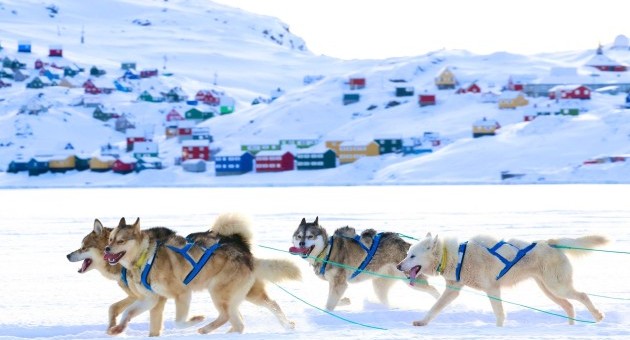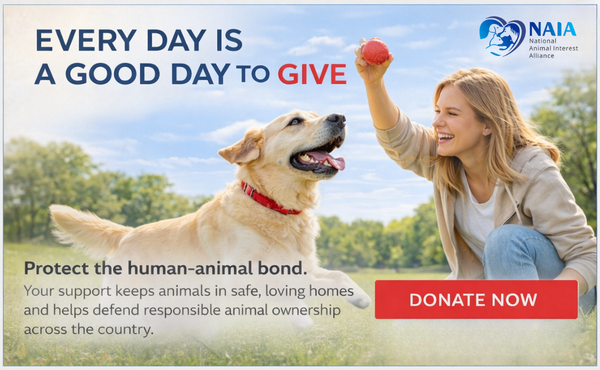Throughout the 20th Century, animal owners, farmers, ranchers, scientists and others who live and work with animals improved standards of care for their livestock, lab animals, and pets, tossing out harsh, ineffective, and inefficient methods and embracing a kinder, gentler stewardship of animals. Some people talked about the "rights" of animals regarding food, water, shelter, and care, but the emphasis was on improving the lives of animals utilized by people, not on eliminating animals from human lives altogether.
However, by the 1980s, the term animal rights had taken on new meaning. Giving rights to animals had become a social and political cause, a moral imperative, which demanded that society adopt a new ethic for human/animal relationships. This new philosophy opposed all use of animals, no matter how humane, no matter how responsible, no matter how much benefit was lost to humanity and other animals from such avoidance.
Today, despite the public's rejection of animal rights, which is clear from the dietary choices of Americans (only 3.2% are vegetarians), animal rights philosophy is a dominant factor in popular culture. The disconnect is caused because many people, even people who label themselves animal rights supporters, don't understand the true beliefs and goals of the animal rights movement or recognize how their own beliefs differ from those views.
To bring this topic into clearer focus, NAIA offers this quick tour of the differences between animal rights and animal welfare, two distinct philosophies.
Animal welfare celebrates the bond between animals and humans; animal rights wants to sever that bond.
Animal rights: "It is time we demand an end to the misguided and abusive concept of animal ownership. The first step on this long, but just, road would be ending the concept of pet ownership." -Elliot Katz, President, In Defense of Animals, "In Defense of Animals," Spring 1997
Animal welfare grows and improves as we learn more and more about animals, their behavior, and their management. Animal rights remains stagnant with its dogma of "no more animal use ever."
Animal rights: "Let us allow the dog to disappear from our brick and concrete jungles--from our firesides, from the leather nooses and chains by which we enslave it." - John Bryant, Fettered Kingdoms: An Examination of A Changing Ethic (Washington, DC: People for the Ethical Treatment of Animals (PeTA), 1982), p. 15.
Animal welfare is inclusive; its belief in stewardship of species and individual animals embraces a human connection to the Earth through interaction with animals. Animal rights is divisive; by separating the destiny of man from the destiny of animals, the movement shows it cares nothing for the Earth.
Animal rights: "...the animal rights movement is not concerned about species extinction. An elephant is no more or less important than a cow, just as a dolphin is no more important than a tuna...In fact, many animal rights advocates would argue that it is better for the chimpanzee to become extinct than to be exploited continually in laboratories, zoos and circuses." (Barbara Biel, The Animals' Agenda, Vol 15 #3.)
Animal welfare makes room for a broad spectrum of animal relationships that include raising and using animals for food, fiber, labor, and medical and behavioral research; managing animal populations by hunting; keeping animals in zoos and other educational venues; and enjoying animal sports and animals in movies, circuses, and on stage.
Animal rights opposes all traditional relationships with animals, from eating meat and wearing leather and wool to biomedical research, pet ownership, dog and cat breeding, circuses, zoos, hunting, trapping, ranching, fishing, and learning about animals by hands-on experience.
Animal rights: "If the death of one rat cured all diseases, it wouldn't make any difference to me." -Chris DeRose, director, Last Chance for Animals, as quoted in Elizabeth Venant and David Treadwell, "Biting Back," Los Angeles Times, April 12, 1990, p. E12.
Animal rights: "My dream is that people will come to view eating an animal as cannibalism." - Henry Spira, director, Animal Rights International, as quoted in Barnaby J. Feder, "Pressuring Purdue," New York Times Magazine, November 26, 1989, p. 192.
Animal rights: "Founded in 1980, PETA operates under the simple principle that animals are not ours to eat, wear, experiment on, or use for entertainment." - PeTA's website, August 2000
Animal welfare requires humane treatment of animals on farms and ranches, in circuses and rodeos, and in homes, kennels, catteries, laboratories, and wherever else animals are kept. Animal welfare endorses a quick death when death is inevitable and a scientific approach to commercial use and management of wild populations.
Animal rights works for the day when we will have no interactions with animals but will view them from afar.
Animal rights: "I don't approve of the use of animals for any purpose that involves touching them - caging them" - Dr. Neal Barnard, Physician's Committee for Responsible Medicine
Animal rights: "We don't want cleaner cages, we want empty cages." - Tom Regan, animal rights leaderTom Regan, animal rights leader
In short, animal welfare works to enrich and celebrate human/animal interactions in an atmosphere of concern for animal well-being; animal rights works for the day when human life will be impoverished because we can no longer enjoy the company of non-human animals.
For more quotes from leaders of the animal rights movement, please visit:https://www.naiaonline.org/naia-library/articles//quotes-from-the-leaders-of-the-animal-rights-movement/
 |
Like this article? Don’t forget to share, like or follow us |
 |
NAIA WEEKLY ROUNDUP
FEATURED & LATEST ARTICLES
GET THE NAIA WEEKLY ROUNDUP VIA EMAIL FOR FREE
Stay Connected with The NAIA: Sign Up for The Weekly Roundup
Join our FREE newsletter and community of animal advocates and receive The NAIA Weekly Roundup straight to your inbox. Stay in the loop with the latest news, events, and ways you can make a difference in the lives of animals. Sign up now to stay informed to create positive change!
Sign Up



 Copper Overdose at the Zoo, Owner of Killer Dogs Found Guilty, and More!
Copper Overdose at the Zoo, Owner of Killer Dogs Found Guilty, and More!
 The Great Veterinarian Shortage: Farm Edition, Elephant Rampage, and More!
The Great Veterinarian Shortage: Farm Edition, Elephant Rampage, and More!
 Full House, (More) Dangerous Dogs, and Bugs!
Full House, (More) Dangerous Dogs, and Bugs!
 NAIA at CITES CoP20, Unexpected Animal Interest Alliances, and More!
NAIA at CITES CoP20, Unexpected Animal Interest Alliances, and More!



